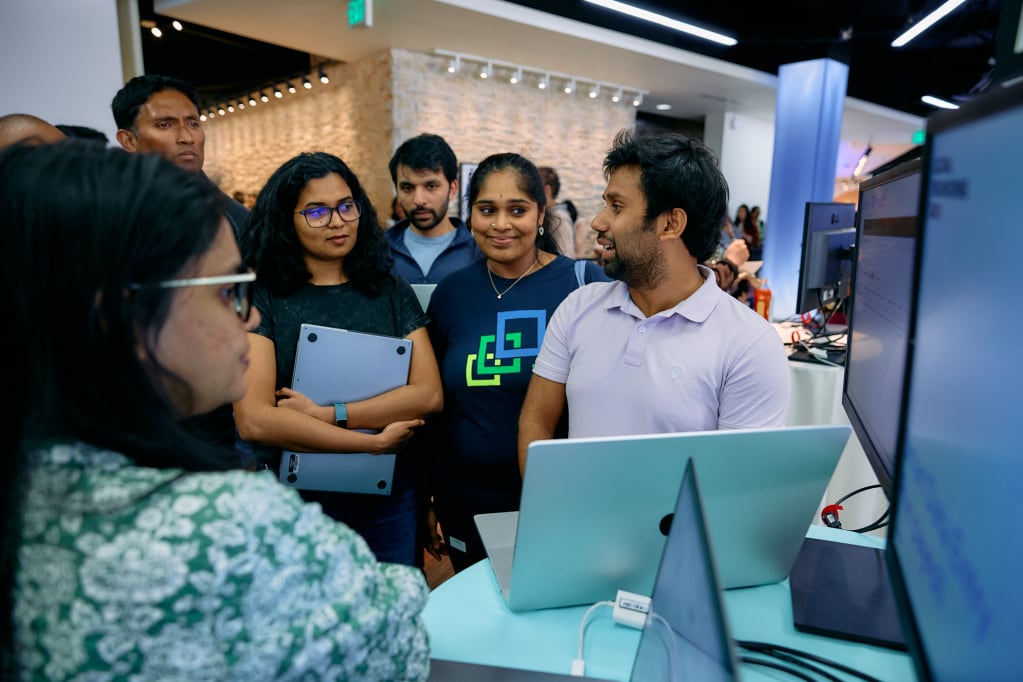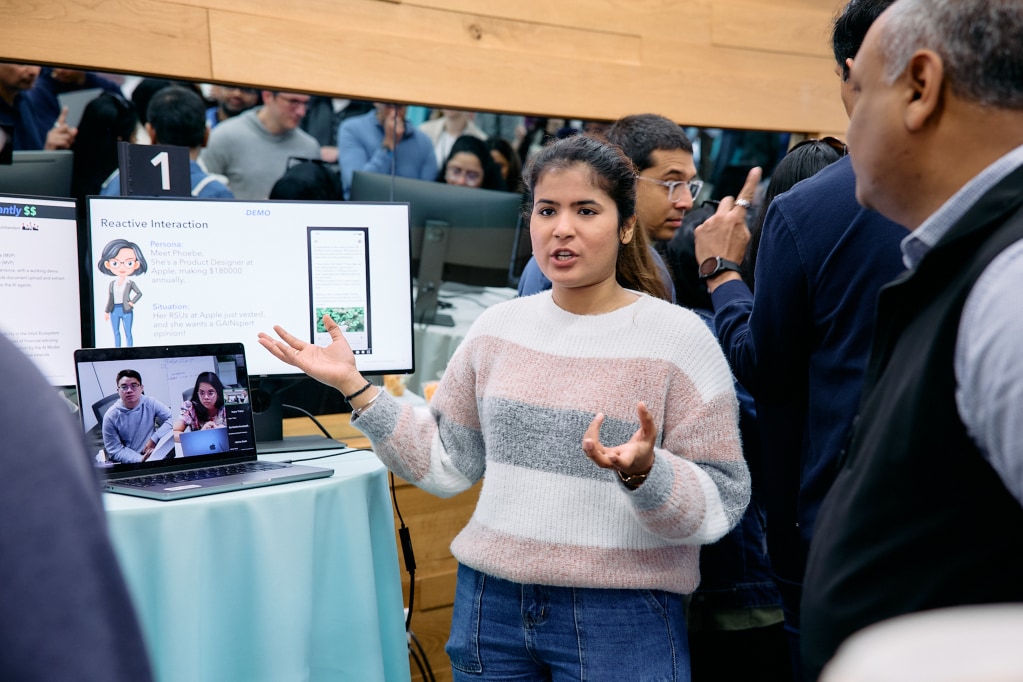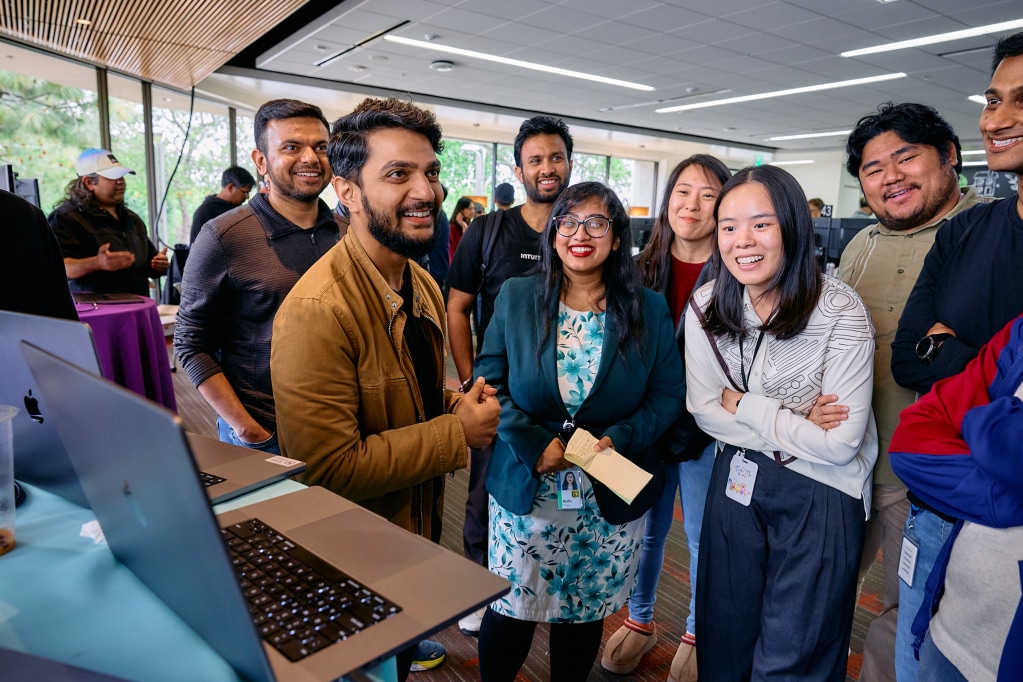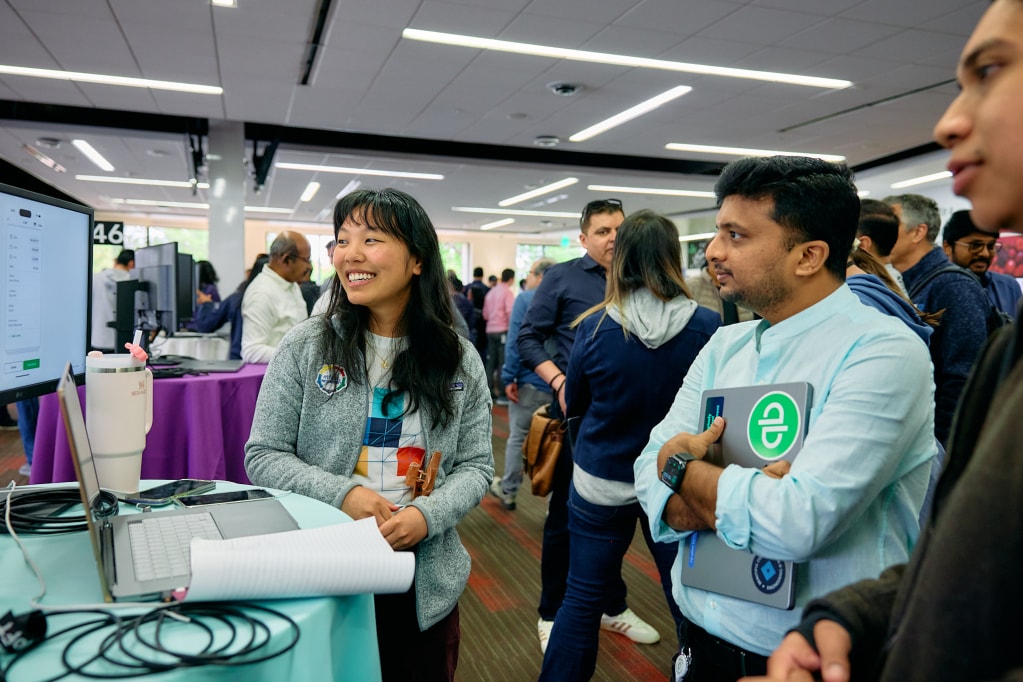Intuit’s Global Engineering Days (GED) is a weeklong code-a-thon that brings together Intuit technologists from all corners of the globe twice a year for a festival of innovation. Engineers, product managers, and designers form teams to work on projects of their choosing—a new idea for propelling business growth, addressing customer pain points, or streamlining work for each other. It’s a week to hit pause on the usual tasks and meetings, and instead focus only on innovation—working across team boundaries, creating rapid prototypes, and testing with customers. Participants are encouraged to be bold and think big.
Hosted at 13 Intuit locations from San Diego to Toronto to Tel Aviv to Bangalore, the recent GED demonstrated impressive growth in employee engagement, with nearly 8,500 participants, more than 2,800 projects, and over 900 teams that showcased their work at closing day demofests, referred to as “gallery walks.”

Intuit’s steady investment and focus on AI and data over the past decade was apparent in the wide range of AI-related projects. Half of all project teams incorporated GenAI, and there was a significant focus on agentic AI—a rapidly evolving new technology. Project teams used AI agents to make our products faster and easier to use, from onboarding new QuickBooks Online customers, to automating routine administrative tasks for tax professionals, to navigating the complexities of credit card and auto insurance marketplaces. Some projects experimented with AI avatars, enabling users to give voice commands to an almost-human assistant.

Some of the GED innovations were designed to directly benefit customers, while others were for internal use, helping Intuit employees be more productive and creative so they can deliver better customer solutions faster. One project experimented with vibe coding—which generates code based on natural language prompts—so non-technical designers could build out the designs they created in Figma. And another project that generated a lot of interest—as well as some laughs—was “SkipitAI,” which uses AI agents to attend meetings for you.

“This GED is all about done-for-you experiences—customer solutions that are so effortless, they feel like they’re magic,” said CTO Alex Balazs at the GED kickoff event. “Our AI proficiency enables us to build these transformative experiences that simplify solutions and drive business outcomes for Intuit.”
Joining Alex on stage was Intuit Chief Architect Chris Kasten, who emphasized the importance of agentic AI in delivering these experiences to Intuit’s approximately 100 million consumer and business customers.
“The use cases for AI that are unfolding in front of our eyes enable us to completely rethink the way our customers interact with us, and how they run their businesses,” said Kasten. “It also changes the way we work at Intuit: whether you’re already working on GenAI workflows or have only been reading about it. GED is the time to learn, innovate, and explore AI technologies—and particularly AI agents.”
With the April 2025 GED behind us, the GED planning team is starting to think about the next event in November 2025. But for the hundreds of teams that ended GED week with a solid proof of concept, they have until mid-July to get their projects ready to ship to production. And then they can see their hard work pay off, delivering benefits to customers and the Intuit Tech community.
GED is a truly special time for Intuit technologists. But with year-round access to a full range of AI-based coding tools and a clear vision of solving customer problems with AI agents, they can innovate like it’s GED every day.
